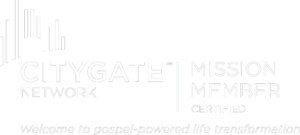Homelessness in our community
It’s not simply a housing problem!
Federal Government Presents New Strategic Plan to Deal with Homelessness
This is great news because the U.S. Interagency Council on Homelessness (USICH) took a fresh and honest approach to solving homelessness. They released a 30+ page document, titled Expanding the Toolbox: The Whole-of-Government Response to Homelessness. This confirms what many missions like ours knew all along, that homelessness presents a multifaceted problem that requires a multifaceted solution that shouldn’t exclude faith-based non-profits.
Our biblical life-transformation ministry and similar ministries across the country recognize the importance of reducing our guests’ dependence on federal homelessness assistance while, at the same time, increasing accountability, as appropriate. This plan envisions an approach that dramatically reduces homelessness by providing individuals and families with wrap-around services and trauma-informed care while addressing the root causes of homelessness.
Faith-Based Organizations Shoulder Majority of Crucial Services and Develop Creative Solutions for Homelessness
Faith-based organizations are at the forefront of addressing root causes of homelessness, providing not only the majority of emergency shelter beds but innovating long-term solutions, a recent study by Baylor University’s Institute for Studies of Religion concludes. The study looked at homelessness in 11 sample cities and is part of a growing body of independent research examining the socio-economic impact of largely overlooked faith-based organizations across the United States.
According to this study, faith-based organizations provide 58 percent of emergency shelter beds in the 11 cities surveyed across the nation, in addition to providing an array of vital services and personalized interventions necessary for long-term recovery and independence. These services include, but are not limited to, education, healthcare, job training and addiction recovery. As a result, the study estimates that faith-based organizations create $9.42 in taxpayer savings for every $1 invested by the government. It further shows an estimated $119 million in tax savings in the 11 cities during the three years following implementation of faith-based Residential Recovery and Job Readiness programs.
The study reveals that in most cases, people become homeless due to a range of complex personal and societal factors, not just because they cannot afford a home. It concludes that faith-based organizations are in a unique position to treat the systemic issues that create homelessness to develop sustainable solutions for both individuals and municipalities. The research also illuminates how collaboration among faith-based, community groups, private industry, and local, state and federal government agencies creates the strongest responses to homelessness and its underlying issues.




